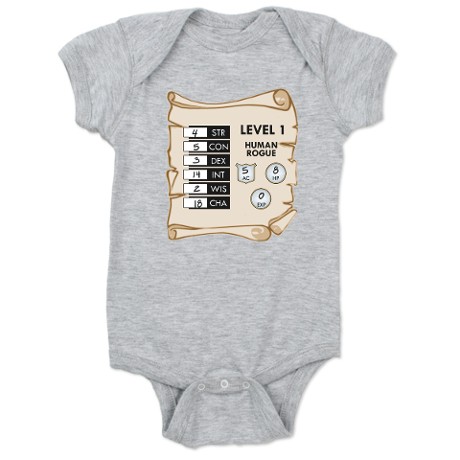
Yes, you’re a nerd if you know what these are for.
Two years ago, I managed the difficult task of becoming an even bigger a nerd then I already was: I started tabletop role-playing. But my group’s campaigns aren’t focused on the battles and die rolling. Instead, they’re improvisational storytelling sessions. You create and dwell in a character, just as you would if you were writing a fictional story. Unlike writing, role playing requires you to be clever on your feet (even if your character isn’t!). So far, I’ve played a young innocent woman running away from court for a life of adventure (Pathfinder) and a socially blunt Nordic blacksmith who has been appointed as a trade guild representative (7th Sea). Because neither of these reflect a lick of my real-life experience it’s forced me to inhabit perspectives very different from my own. Developing this keen empathy for my fictional characters has sharpened my skills for relating to real people, including my son. In fact, creating a character has been good preparation for adopting to my new role as a parent.
To develop a character, you construct a whole person, with their own background and voice. You need consider what she would want in any given situation and respond accordingly. It can be seriously challenging.
But that process was easy compared to my mental and emotional transition to the role of “mommy.” Instead of coming up with a fictional identity, I faced a whole new facet of my own. Rather than abilities like climbing I could write on a sheet, I suddenly had to learn a list of real skills, from diapering to breastfeeding. My own needs and wants hit me in a barrage of emotion, causing reactions that my old self would have never predicted. I cry at beer commercials! Sometimes I felt like a character in someone else’s life, playing an unfamiliar role.
I ended up handling both challenges with largely the same approach – fake it ’till you make it. I used to hate this idea, feeling that if you can’t do something well that “pretending” was fraudulent. But, I realized there’s simply no other choice. You can’t become familiar with a character until you play them for a while. No one knows what it’s like to be a parent until it happens. At first, it’s totally foreign. But by acting like a “good parent” even when you don’t feel like one, you eventually become one. C.S. Lewis has a good analogy in Mere Christianity, talking the process of becoming a “good Christian.” He explains that we will never reach Jesus’s level of love, but we can “put on his clothes” and practice. Just like little children walking around in their parents’ shoes, we too will grow into the people we need to be.
In addition to helping me take on my new role, gaming has helped me see the world a little more through the eyes of my infant. If he had a character sheet, it would read strength 2, dexterity 1, intelligence 5 (current level of knowledge, not IQ), and charisma 18. While he’s since leveled up in forward locomotion and object manipulation, crying was his sole skill when he was born. Contemplating how much he had to learn – even eating and pooping! – helped me comprehend how overwhelming the world must be. Seeing the world from his perspective has reinforced my patience, even at 2 AM in the morning.
While many people make fun of role players for living in a fantasy world, it’s actually helped me be a better parent in the real one.
